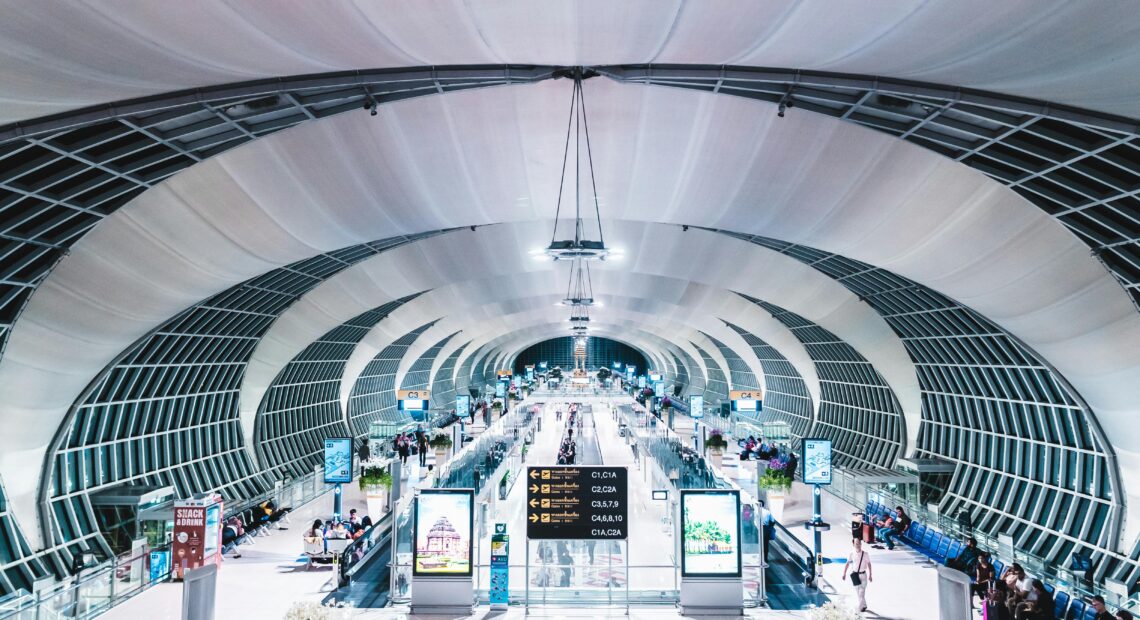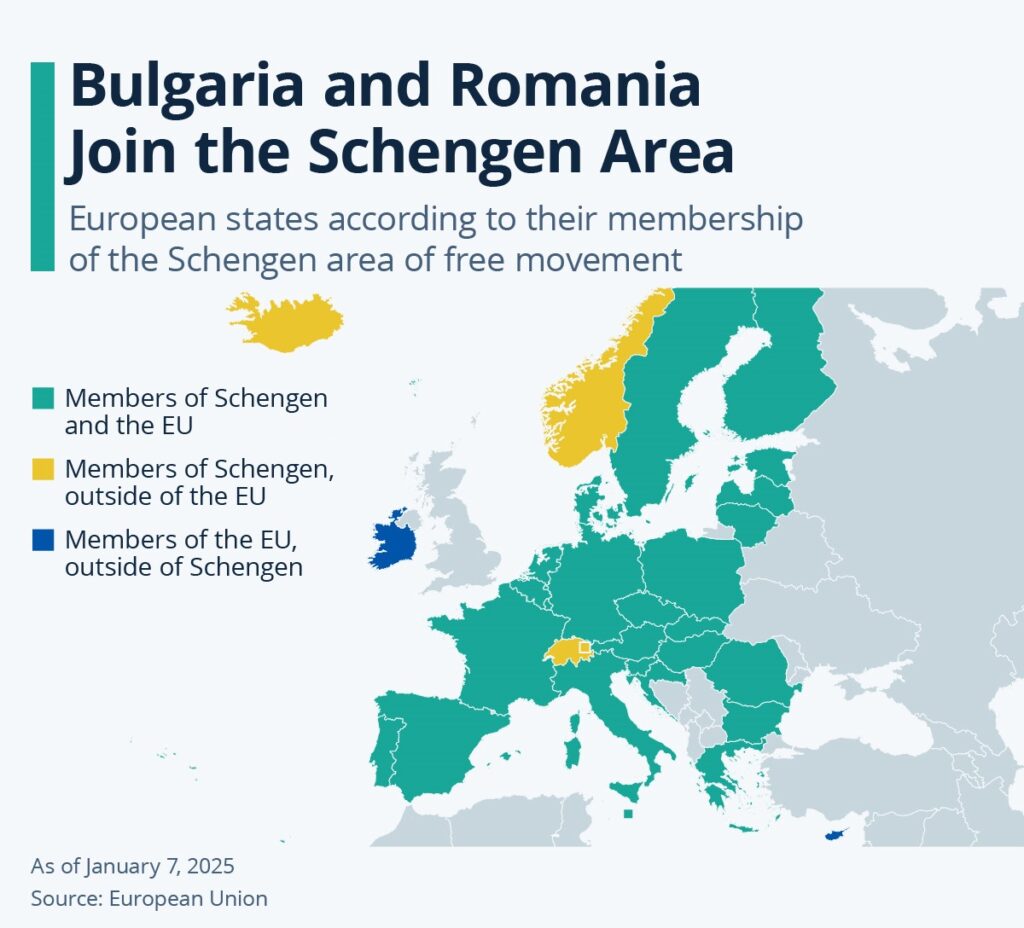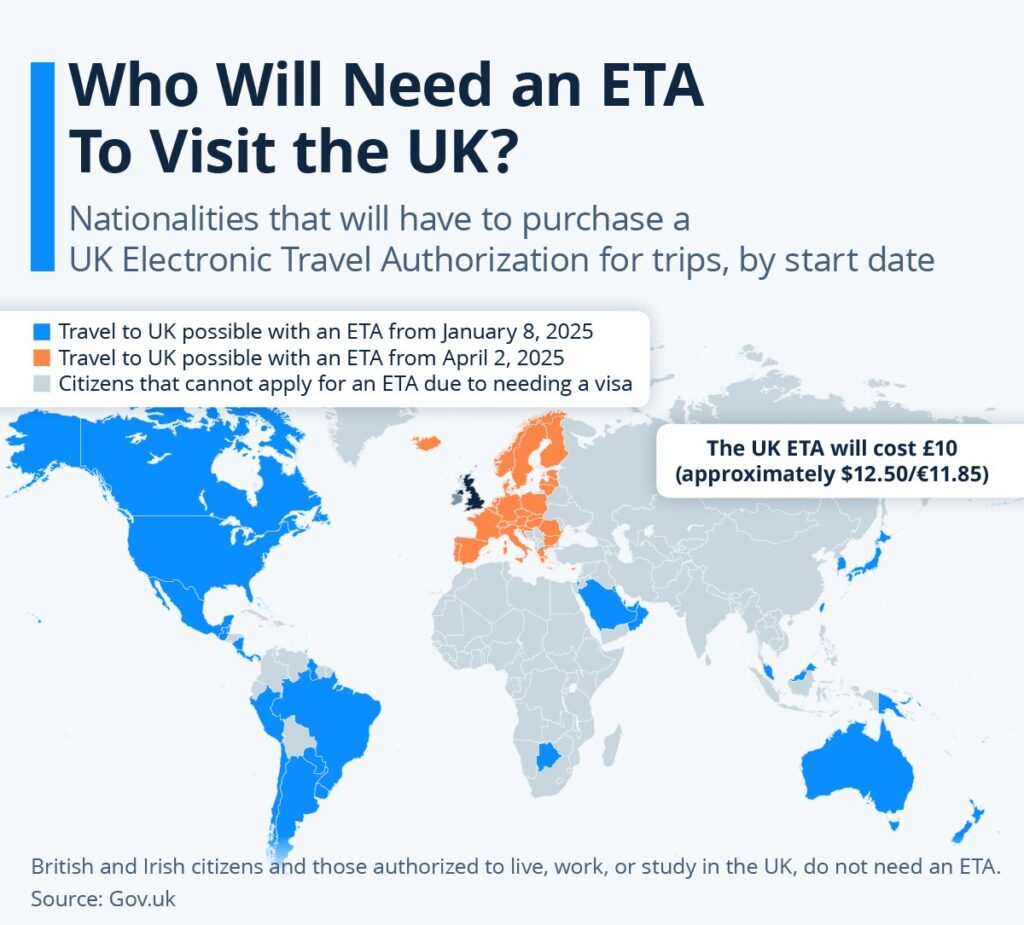Changes to European and UK border policies mark new year

New travel requirements now in force
Since the beginning of 2025, Europe’s rules of movement have seen significant border changes as both the Schengen Area and UK travel regulations evolve. On January 1, 2025, Bulgaria and Romania became full members of the Schengen Area, completing a 13-year wait for inclusion.
Meanwhile, on January 8, 2025, the UK introduced a new travel requirement for non-visa visitors, including citizens from 54 countries, who must now purchase an electronic travel authorisation (ETA) to enter the country.
Bulgaria and Romania officially became full members of the Schengen Area at the beginning of January. After more than a decade of anticipation, the two countries’ accession was finally secured when Austria lifted its veto in December 2024. With this change, the two countries’ land borders now join airports and seaports in removing border checks, completing their integration into Europe’s passport-free zone.

The Schengen Area, first created in 1995, has expanded to include 25 of the 27 EU member states and four non-EU countries: Iceland, Norway, Switzerland, and Liechtenstein.
Although Bulgaria and Romania have eliminated their internal border controls, temporary controls remain along some EU borders. For example, due to security concerns, mainly regarding illegal migrants from the Middle East, Africa, and Asia, Germany has reintroduced checks along its borders.
Temporary internal border controls are allowed within the Schengen Area in exceptional circumstances, such as public safety threats, migration concerns, or, as in Denmark’s case, attempts at espionage.
UK changes
On January 8, 2025, the UK rolled out its new travel policy, requiring non-visa overseas visitors to apply for an ETA. Initially introduced for citizens of six Arabian Gulf countries in 2024, this policy has now been extended to 54 countries and territories, with a further 34 added from April 2, 2025. The new measure aims to tighten border security by collecting more detailed information on those entering the country.
The ETA allows multiple journeys to the UK for stays of up to six months and is valid for up to two years or until the holder’s passport expires—whichever comes first. The ETA fee is $12.50, and applicants can submit their requests online or via the UK ETA app. A typical application is processed within three working days, providing a fast and straightforward entry clearance process.

The new policy was implemented in the UK’s broader strategy to enhance border security. The UK government asserts that the ETA system aligns with similar measures used by countries like the US and Australia. It helps authorities better understand who enters the country and prevents individuals deemed a security threat from gaining access. This includes citizens from small island states like Nauru and Kiribati, whose nationals are now required to obtain an ETA.
The new requirement does not apply to British citizens, those with permission to live, work, or study in the UK, or Irish nationals. The ETA does not apply to visitors from countries requiring a visa to enter the UK.
Schengen Area expansion
As the Schengen Area grows, its enlargement highlights both progress and challenges. While Bulgaria and Romania’s inclusion represents a significant milestone, the broader Schengen Area is also grappling with issues related to internal border controls. The expansion and the reintroduction of border checks signal a complex balance between freedom of movement and the need for enhanced security measures in response to rising concerns about terrorism, migration, and other threats.
Despite these challenges, the Schengen Area remains a cornerstone of European integration, offering citizens and residents of participating countries unrestricted travel across a vast region. However, as the dynamics of security and migration continue to evolve, it remains to be seen how both the Schengen and UK border policies will adapt in the coming years.
As Europe moves forward with these changes, it is clear that border policies will continue to shape the flow of people across the continent. Security concerns, political will, and practical realities all shape the future of free movement.
Hero image: The new UK measure aims to tighten border security by collecting more detailed information on those entering the country. Credit: Chait Goli













